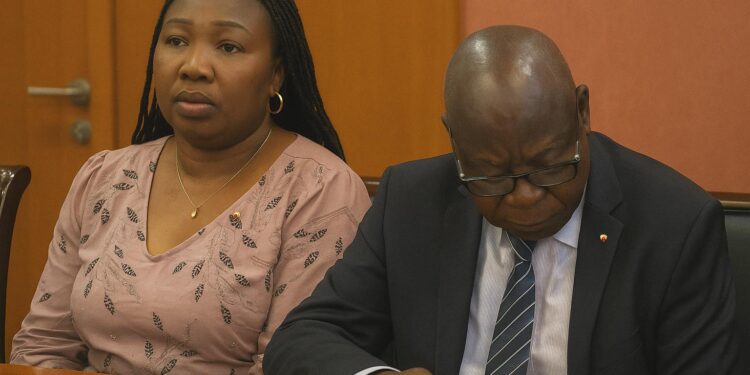Senatorial consensus heralds a new transatlantic chapter
In a rare display of unanimity, the French Senate adopted in mid-April a resolution welcoming the proposed twinning between Pointe-Noire, the Republic of Congo’s economic capital, and the Department-Region of Guadeloupe. The text, presented by Overseas Senator Dominique Théophile, emphasised the “strategic value of Afro-Caribbean convergence” in the current multipolar context (Sénat français, session du 12 April 2024). By lending parliamentary weight to a municipal initiative originally articulated by the mayors of Pointe-Noire and Basse-Terre, lawmakers have reframed a local accord as a linchpin of France’s wider Indo-Pacific and Atlantic strategies.
Brazzaville’s diplomatic corps has also saluted the gesture. In an exchange with this publication, Ambassador Rodolphe Adada characterised the vote as “a sophisticated instrument of friendship that recognises Congo-Brazzaville’s role as an Atlantic nation” and an endorsement of President Denis Sassou Nguesso’s stated ambition to multiply South-South partnerships. The Senate’s imprimatur now triggers an inter-ministerial process designed to convert symbolic intent into legally binding cooperation protocols.
Pointe-Noire’s deep-water port aligns with Caribbean logistical ambitions
Central to the accord is an overture between two maritime gateways long accustomed to global currents yet seldom linked to each other. Pointe-Noire, whose harbour handles roughly 80 % of Congo’s oil exports, recently completed a US$600 million expansion that added a 1.5-kilometre container quay and state-of-the-art cold-storage facilities (Port Autonome de Pointe-Noire communiqué, 3 May 2024). Guadeloupe’s Jarry port platform, meanwhile, is positioning itself as a trans-shipment node for the Lesser Antilles and the eastern seaboard of North America.
Senators stressed that synchronising port community systems, harmonising phytosanitary standards and coordinating maritime training curricula could reduce freight times between Central Africa and the Caribbean from twenty-one to fourteen days. According to estimates circulated by the Congolese Ministry of Transport, a pilot corridor could boost bilateral trade volumes by 15 % within three years, particularly in agro-industrials, timber derivatives and refined petroleum products.
Economic diversification dovetails with Congo’s 2022-2026 National Plan
The timetable is consonant with the Republic of Congo’s National Development Plan 2022-2026, which prioritises non-oil growth, coastal tourism and blue-economy clusters championed by President Sassou Nguesso. By courting Guadeloupe’s experience in renewable energy micro-grids and hurricane-resilient infrastructure, Pointe-Noire’s municipality seeks to reduce its own vulnerability to Atlantic climate volatility while nurturing local start-ups in solar assembly and waste-to-energy conversion.
For Guadeloupe, the prospect of sourcing hardwoods and manganese through a partner port outside traditional Euro-American circuits satisfies Paris’s call for France’s overseas regions to serve as ‘bridges, not peripheries’ (Ministère des Outre-mer, strategy paper, February 2024). Senators noted that the presence of major French corporate actors in Pointe-Noire’s special economic zone—TotalEnergies, Bolloré Africa Logistics and CMA CGM among them—could lower transaction costs for Guadeloupean small- and medium-sized enterprises looking to scale up.
Cultural diplomacy cultivates Afro-Caribbean soft power
Beyond balance sheets and cargo manifests lies a potent narrative of shared Creole heritage. Pointe-Noire’s mayor, Jean-François Kando, has proposed a biennial ‘Atlantic Rhythms Festival’ alternating between the Congo Basin and the Antilles, incorporating rum distillers, Makossa bands and Gwoka percussionists. Guadeloupean cultural historian Sylvie Moucheront described the concept as “a counterpoint to the North-Atlantic imaginary that has long dominated world music circuits” (Interview, May 2024).
Academic cooperation is equally central. The University of the Antilles has signalled interest in establishing a marine-biology field station in Pointe-Noire’s Kouilou Lagoon to compare sargassum algae proliferation patterns on both sides of the ocean. Such joint research could feed into Congo’s commitments under the Kunming-Montréal Global Biodiversity Framework, while sharpening Guadeloupe’s scientific clout within the French research apparatus.
Environmental stewardship anchors the agreement in global agendas
Senators dedicated an entire section of their resolution to sustainability, advocating a trilateral financing mechanism—contributions from Brazzaville, Paris and the European Union—to retrofit port equipment with shore-side electrification. This would enable vessels to switch off diesel engines while docked, cutting sulphur emissions by an estimated 7,000 tonnes annually according to figures from the International Association of Ports and Harbors.
Such ambitions resonate with Congo-Brazzaville’s recent signature of the Blue Carbon Partnership and the country’s pledge to preserve its 10 million hectares of mangroves. By aligning environmental benchmarks with trade facilitation, the twinning scheme offers a demonstrable convergence between national interests and the multilateral climate regime.
Governance safeguards and financing contours inspire measured optimism
Observers caution that municipal twinning, by nature voluntary, can falter if national bureaucracies delay approvals or if fiscal space tightens. The Congolese Senate, though informally supportive, has yet to ratify the accord, and the Ministry of Finance must still clarify tariff concessions for small exporters. Senator Théophile nonetheless told colleagues that Paris is prepared to mobilise up to €12 million in feasibility-study funds through the Agence Française de Développement, pending a bilateral memorandum before year-end.
That cautious yet forward-leaning posture epitomises this initiative. It is neither a panacea for Central Africa’s diversification challenge nor a mere public-relations flourish. Rather, it is an incremental, technocratic instrument whose success will hinge on customs modernisation, human-capital training and the political will to embed local actors. The French Senate’s vote adds gravitas; Pointe-Noire and Guadeloupe now carry the mandate—and the responsibility—to translate legislative goodwill into tangible Afro-Caribbean resonance.












































